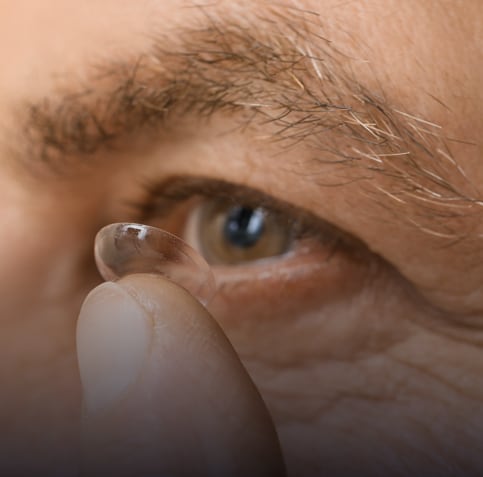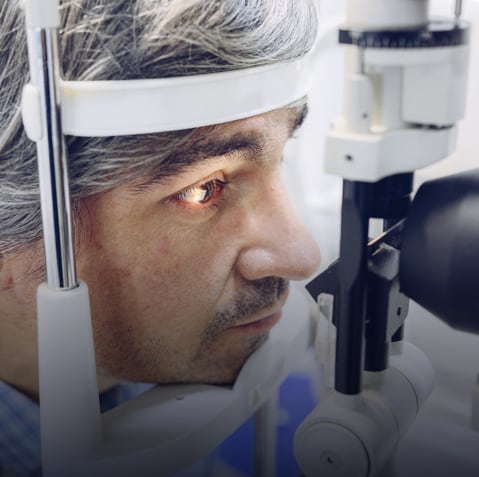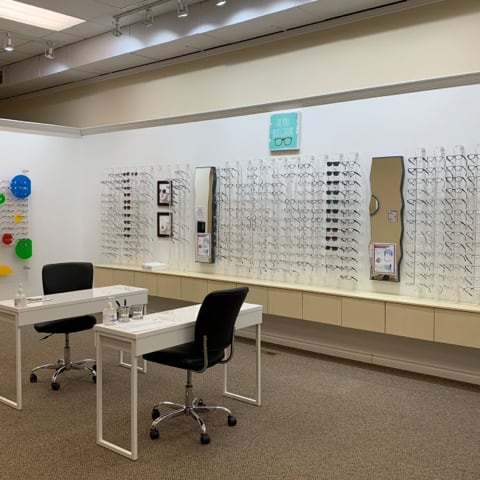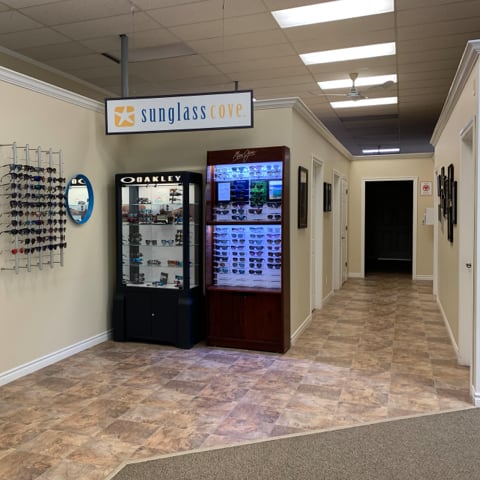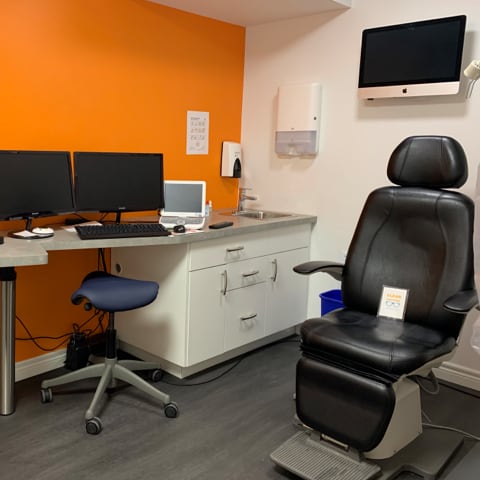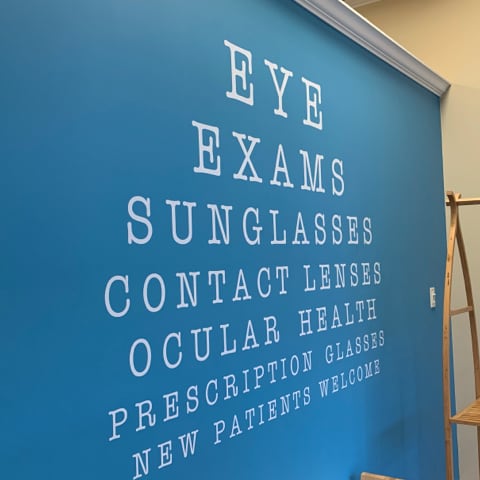Come In, Relax, & Let Us Take a Look
We all know our vision changes as we get older. It’s just a fact of life.
But it’s important to know that even if vision and eye health changes are normal, we should still monitor them with the help of a team who understands and cares for your needs.
At St. Marys Optometry, we take a unique interest in your eye health, vision, and lifestyle to find awesome ways to support your vision throughout your life. From the moment you step into our practice to the moment you leave, our team is by your side to ensure you have everything you need to enjoy your sight with comfort, confidence, and clarity.
You’re more than a patient—you’re family. Book your next eye exam with our team today!
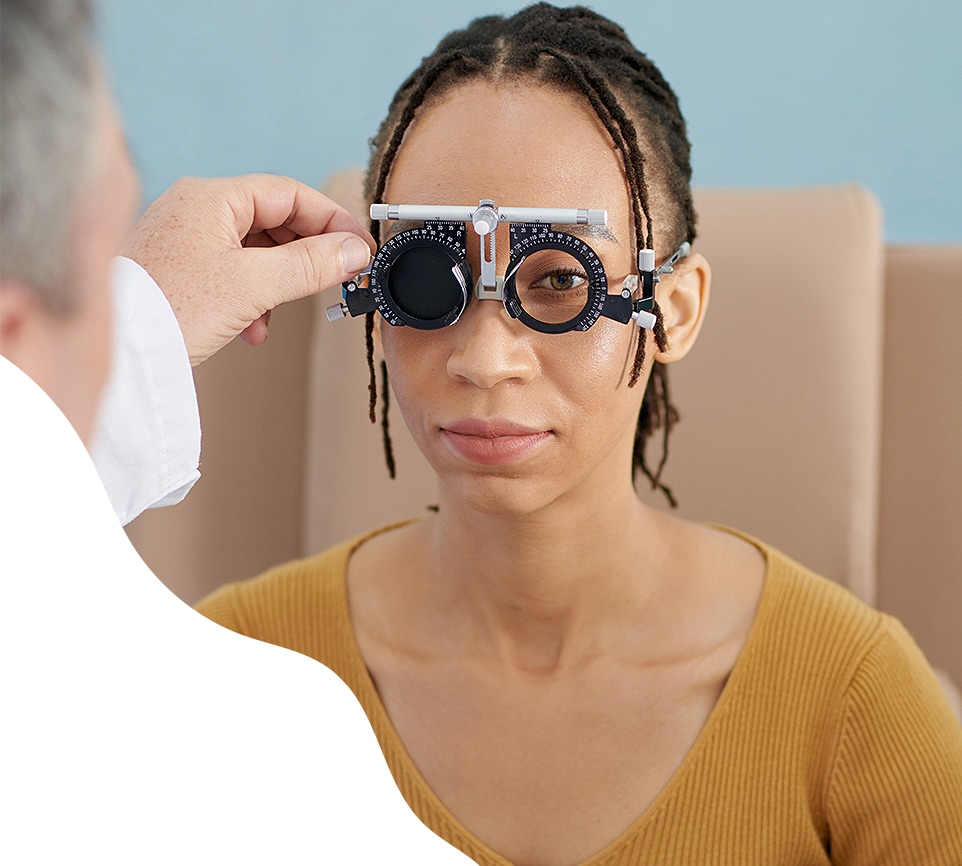
Caring for Your Vision Throughout Life
If your eyes change as you age, what can you do to care for them?
The first step is to make sure you have regular comprehensive eye exams. Before prescribing glasses, contacts, or eye disease strategies, we first need to determine exactly how we can help support your eye health.
The risk of developing an eye or vision problem can increase as you age, and issues can progress even if you don’t notice any symptoms. By looking at the structures in your eye, we can detect, diagnose, and manage these issues throughout your life.
We recommend having an eye exam every 1 to 3 years, but we may recommend more frequent appointments if we discover an issue that needs managing.

What to Expect from an Eye Exam
Think of your eye exam as a “physical” for your eyes. During the eye exam, we’ll get a baseline of your eye health, assess your vision, and determine your risk of developing certain eye diseases or conditions throughout your life.
Right at the start of the eye exam, we’ll go over your personal and family health history and answer any questions you have before moving forward with the rest of the exam.
Testing Your Vision Quality
We designate a portion of your eye exam to determine your vision quality and update your current lens prescription. We can do this in a variety of ways, but some of the most common include using an eye chart or a lens comparison device called a phoropter.
Examining Your Eye Health
During the eye health part of your eye exam, we’ll take a detailed look at your eye and the various structures inside them.
Examining your eye health is essential to detecting and diagnosing eye diseases like glaucoma and age-related macular degeneration.
Prescriptions & Treatments
At the very end of your exam, we’ll provide you with any prescriptions or recommendations you may need to live life with clear, comfortable vision.
In some cases, we may update your lens prescription, or we may prescribe a treatment to manage eye disease. If you need anything else before your exam ends, be sure to speak to our team.
And don’t forget to take a look at our selection of designer frames!
What Affects Your Eyes as You Age
Presbyopia
If you’ve ever seen someone hold something at a specific distance to help them see, they may have presbyopia.
Presbyopia is a common age-related visual error people develop when muscles controlling their eye’s lens lose their elasticity. As a result, it may be harder for you to focus on something at both near and far distances.
Multifocal lenses are common for correcting vision errors associated with presbyopia.
Cataracts
Cataracts are characterized by the milky, hazy appearance they cause in your eye’s lens, impairing your vision over time.
Glasses and contact lenses can help correct early cataract-related vision problems, but cataract surgery can help restore your vision from cataracts.
Eye Disease
You may have a higher risk of developing eye diseases like glaucoma or as you age. We can detect these issues during an eye exam and prescribe a strategy to help preserve your vision.
Learn more about these issues by visiting our Eye Disease Diagnosis & Management page.
No two pairs of eyes are the same, so eye exams are important for looking for potential issues you may have a higher risk of developing.
Aging is a common factor for many eye problems, but some of the most common age-related issues include presbyopia, cataracts, and eye disease. We can detect these concerns during an eye exam and provide strategies for managing or addressing their development.
Book Your Next Eye Exam Today
For an awesome eye care experience as unique as you are, book your next eye exam today at St. Marys Optometry.
Our location
Wanna see what we’re all about?
We’re in the heart of St. Marys on Queen Street East. There’s parking outside our front door, but you can easily walk to us even if you park a few blocks away.
Contact Information
- Phone: 519-284-4144
- Email: [email protected]
(Do not send personal health information by email.)
Address
- 151 Queen St. E
- St. Marys, ON N4X 1A9
When We’re Open
- Monday: 8:00 AM – 4:00 PM
- Tuesday: 1:00 PM – 7:00 PM
- Wednesday: 8:00 AM – 4:00 PM
- Thursday: 8:00 AM – 4:00 PM
- Friday: 8:00 AM – 3:30 PM
- Saturday: Closed
- Sunday: Closed
Our Brands









